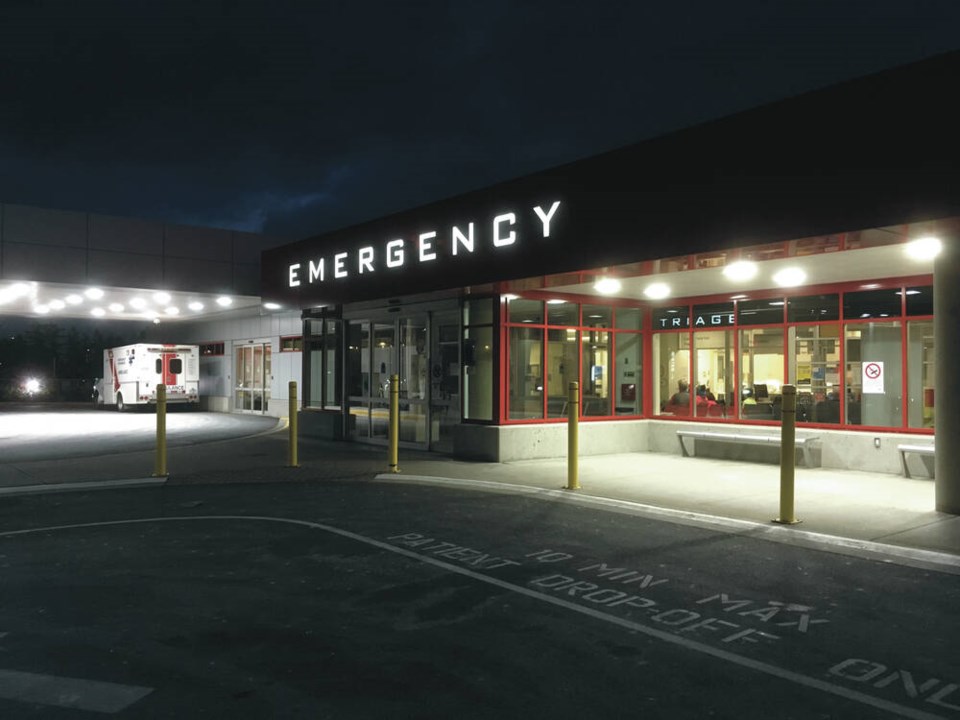At their meeting last week, the four western premiers called on the federal government to increase its share of health-care spending.
Of course, blaming Ottawa for whatever ails them is a favourite ploy of premiers. But in this instance, they certainly have a case.
When our national medicare program was established in the 1960s, the federal government induced the provinces to sign on by promising to shoulder 50 per cent of the financial burden. Today, that share has fallen to just 22 per cent.
Moreover, this withdrawal of federal funding has taken place while health-care costs have soared. A quick look at past and present budgets tells the story.
In 1970, health costs in sa���ʴ�ý represented just 17 per cent of total spending. Today, health-care spending consumes 38 per cent of the budget, more than twice the earlier amount.
And yet that’s not sufficient, as all of us can see. Close to one million British Columbians cannot find a family physician. Wait times for surgery and diagnostic imaging procedures are too long. Finding a specialist can be a daunting task.
Just how daunting was made clear in a shocking opinion piece printed two weeks ago on this page.
Shannon Tran, who lives in the Comox Valley, told the story of her father-in-law’s search for treatment. On April 7, suffering from difficulty in eating, 70-year-old Francis Tran visited the local emergency room and was told he has three tumours on his liver. One of them measured 10 centimetres in length.
In any properly functioning health-care system, that would be considered a medical emergency. And indeed Tran was told that he could be treated with surgery if an operation took place quickly.
Yet after that, it took more than 10 weeks for him to get an appointment with an oncologist, and that’s just a consult. More time may pass before he has treatment.
This is unforgivable, but more than that it is a dramatic illustration of just how far out of sight our health-care system has fallen.
So what should the premiers expect from Ottawa? Premier John Horgan reported that he and his colleagues are asking for a $28-billion increase in health transfers, which would bring Ottawa’s funding share to 35 per cent.
Even if that request is granted, is it enough? On a rough basis, sa���ʴ�ý could expect to receive around $4 billion.
If all of that increase arrived in year one of a new agreement, it would certainly make a difference.
But if past history is anything to go by, the federal government will stretch that increase out over several years, and this will not suffice.
The deeper problem is a longstanding imbalance in the respective revenue-raising capacity of the provinces and Ottawa.
Federal taxing powers far outweigh those of the provinces, yet the latter bear responsibility for most of the expensive programs, in particular health, education and social services.
In effect, the premiers have been reduced to the role of beggars in the nation’s capital, dependent entirely on federal grace and favour. And not unnaturally, in a political world, the politicians in Ottawa place more emphasis on their priorities than on the premiers’.
What the provinces really need is a restructuring of the tax base, consistent with their funding duties. If Ottawa ceded 20 per cent of its income tax base to the provinces, a fair reflection of program responsibilities, the immediate benefit would be in the range of $60 billion annually.
That would restore Ottawa’s share of health costs to the original 50 per cent commitment.
Of course, such a radical reapportionment of revenue powers would require a concentration of political energy such as we rarely see.
But isn’t that exactly what the crisis in our health-care system demands?



